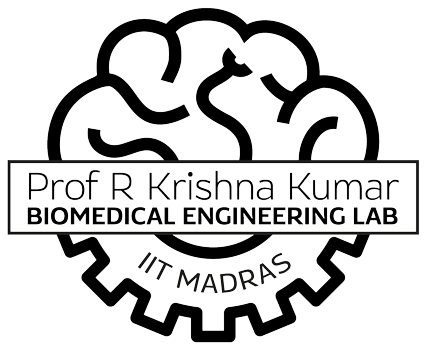Medical Technology and Engineering Design Research at
IIT Madras
The Biomedical Engineering Lab at IIT Madras is a premier lab headed by Prof. R. Krishna Kumar, an Institute Professor at the Department of Engineering Design. The lab focuses on research and development of technologies and products for enhancing the quality and access to Healthcare. The research applies engineering principles to biomedical sciences, advancing thinking, fostering knowledge, and encouraging the development of novel and innovative technologies for both diagnostics and treatment, benefiting patients worldwide.
Our Projects
Can a human heart be replaced by an artificial heart?
The heart is indeed, a delight for Engineers
Can we model the complete blood flow in a human?
Getting a pulse on the circulatory system
Can we improve the Design of a Micro Axial Pump?
This study focuses on developing a cardiac support device, mainly targeting, but not limited to the support of the left ventricle, whose insertion can be made percutaneously. The device will be a Percutaneous Left Ventricular Assist Device (PVAD).
Axial Pumps offer a high flow rate while being small in size
Can we close a child’s chest after LVAD Implant?
A 3D model of the Child’s heart developed from CT Scan images provided the answer
What causes Brain Strokes in Patients with Artificial Heart Pumps?
The mechanism of hypertension was always assumed to have an endocrine basis, but this study changed that
Aortic Valve: The Physiology
Understanding the mechanics of the aortic valve is critical to cardio thoracic surgical procedures
Why are heart attacks silent killers?
As the size of the block increases, the stress drops but strength also drops
Navigation System for Brain Surgery
Cartosense, a company which was founded and incubated in our lab has developed one of the most advanced neuro-navigation systems

Brain Shift in Neurosurgery
We used finite element and finite volume methods to estimate and reduce brain shift and improve neuro-navigational system accuracy
Virtual Operations on a Digital Twin
The inputs gained from the virtual operations helped doctors to chart their course and optimize their strategies for the actual surgery
An Automated framework for the analysis of fetal ultrasound images
The framework comprises of four main modules, each of which addresses a particular image analysis challenge
